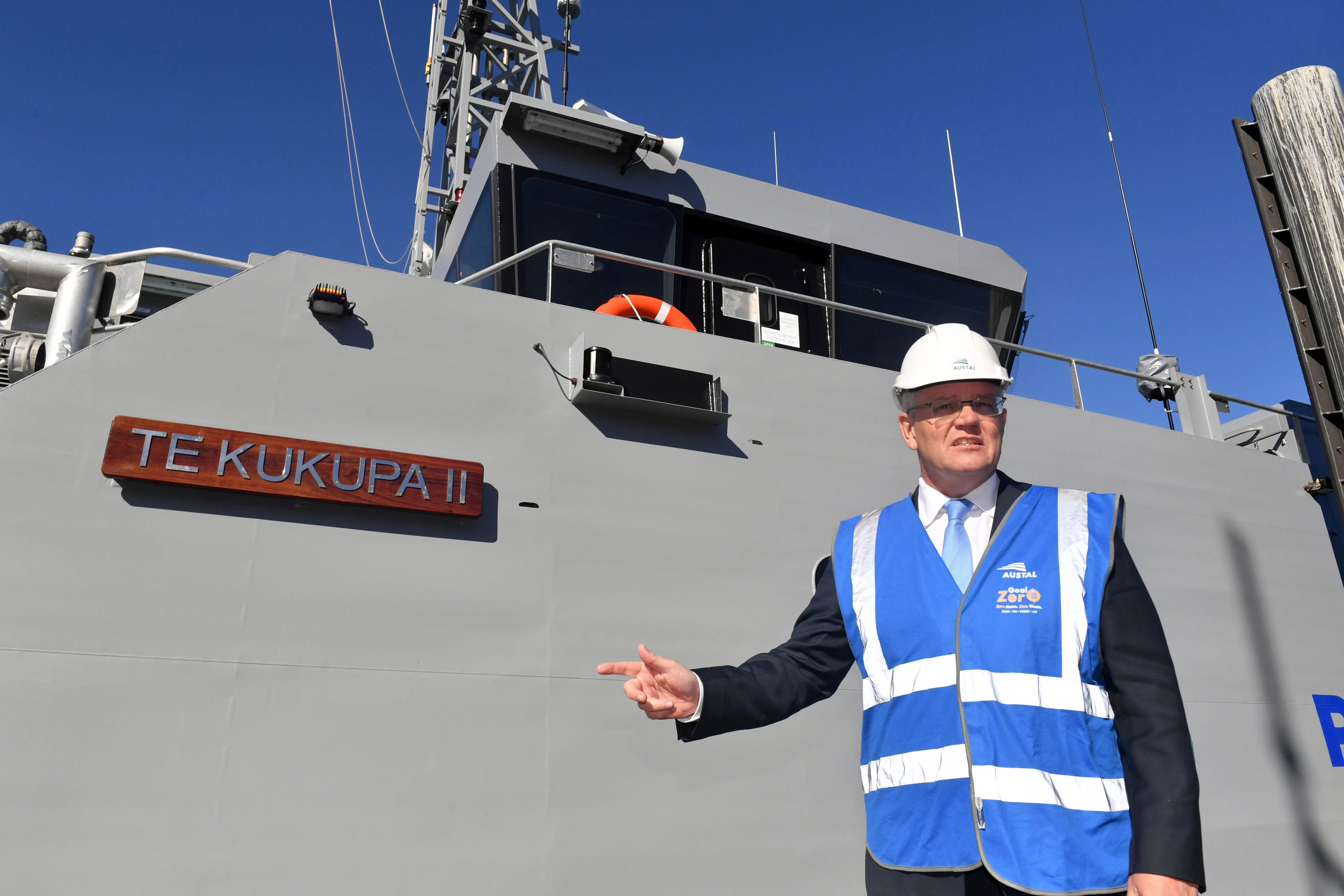Australian leader warns of a resurgence in asylum seekers
Australia’s prime minister warns that thousands of asylum seekers will attempt to reach the country by boat if the opposition party wins elections on May 21

Your support helps us to tell the story
From reproductive rights to climate change to Big Tech, The Independent is on the ground when the story is developing. Whether it's investigating the financials of Elon Musk's pro-Trump PAC or producing our latest documentary, 'The A Word', which shines a light on the American women fighting for reproductive rights, we know how important it is to parse out the facts from the messaging.
At such a critical moment in US history, we need reporters on the ground. Your donation allows us to keep sending journalists to speak to both sides of the story.
The Independent is trusted by Americans across the entire political spectrum. And unlike many other quality news outlets, we choose not to lock Americans out of our reporting and analysis with paywalls. We believe quality journalism should be available to everyone, paid for by those who can afford it.
Your support makes all the difference.Australia’s prime minister on Monday warned that thousands of asylum seekers will attempt to reach the country by boat if the opposition party wins elections on May 21.
The annual number of asylum seekers arriving in Australian waters by boat peaked at more than 20,000 in 2013, the year the conservative government was elected and began turning back boats in a military-led policy known as Operation Sovereign Borders.
The government also continued a center-left Labor Party administration’s policy — introduced two months before the election — of banishing boat arrivals to immigration camps on remote Pacific islands. Boat arrivals have since become almost nonexistent.
Prime Minister Scott Morrison suggested his coalition government’s success against the people smuggling trade had inspired Britain’s plan to put some asylum seekers on one-way flights to Rwanda.
“We established Operation Sovereign Borders and it has been one of the most successful border protection policies anywhere in the world. So successful, that other countries are taking their lead from Australia’s successful approach, and why? It’s the humane thing to do,” Morrison said.
Opposition leader Anthony Albanese has said a Labor government would change the national policy on asylum seekers by getting rid of so-called temporary protection visas.
Refugees among Australia’s formal protection intake are permanently resettled. But those who arrived by boat are given three-year protection visas. The visas can be extended if refugees can’t be returned to their homelands, but critics argue the uncertainty over their futures gets in the way of creating new lives.
Morrison blamed a previous Labor government abolishing three-year refugee visas in 2008 for the surge in boat arrivals that followed. Only 161 asylum seekers arrived in 2008. But more than 2,700 arrived the following year and 6,500 in 2010.
“I know that when Labor abolished temporary protection visas in 2008, the armada of people smugglers’ boats came to Australia and that was the launching point,” Morrison said.
Refugee Action Coalition spokesman Ian Rintoul, a Melbourne-based refugee advocate, accused Morrison of “scare mongering” over the need for temporary visas that don’t provide refugees with the same rights as permanent visas.
Australia’s harsh refugee policies have been criticized by the United Nations and human rights groups.
Indonesia has condemned the Australian navy turning back asylum seeker boats to Indonesian ports as a violation of Indonesian sovereignty.
Some smuggling crews had developed a tactic of sabotaging their crowded fishing boats after being intercepted by patrol boats so that Australian crews would have to rescue them from sinking.
Australian ships have countered by putting these asylum seekers and crews into powered lifeboats that are then towed close to the Indonesian coast and left with just enough fuel to reach the shore.
The leader of the Anglican church this week strongly criticized the British government’s plan to send asylum seekers to Rwanda, saying “sub-contracting out our responsibilities” to refugees can’t stand up to God’s scrutiny.
Archbishop of Canterbury Justin Welby made the unusually direct political intervention in his Easter Sunday sermon, saying there are “serious ethical questions about sending asylum-seekers overseas.”
Labor has been leading the government in most opinion polling in recent months. The government is seeking a rare fourth three-year term.